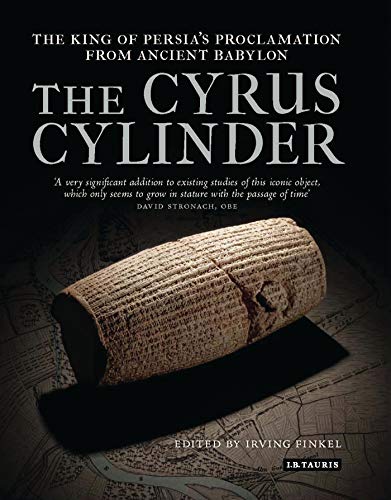Not A Historian Reading List

The Cyrus Cylinder: The King of Persia's Proclamation from Ancient Babylon
Some historical artifacts are destined forever to alter how the ancient world is perceived. The unearthing in today's Iraq (in 1879) of a clay cylinder-shaped decree from Cyrus the Great, founder of the Achaemenid dynasty of Persia, stands in the same tradition of game-changing discoveries from antiquity as Hammurabi's famous law code or the intact tomb of the boy-king Tutankhamun. For the Cyrus Cylinder contains in microcosm the whole history of its period. Inscribed with an account of the conquest of Babylon in 539 BCE by the Persian King, it records an event which launched one of the greatest imperial adventures in history. It describes Cyrus' capture and deposition of Nabonidus, last native Babylonian ruler (represented by the Cylinder text as an oppressor of his own people) and proclaims the Persian as a liberator. His annexation of Babylon was to become the platform upon which the Achaemenid military machine built its later vast imperium. But the Cylinder is more than an ancient exercise in propaganda. It has also been called the world's first declaration of human rights, setting out the decree by which Cyrus freed the Jews from captivity in Babylon. This important volume is the first to discuss the Cylinder and its remarkable history.